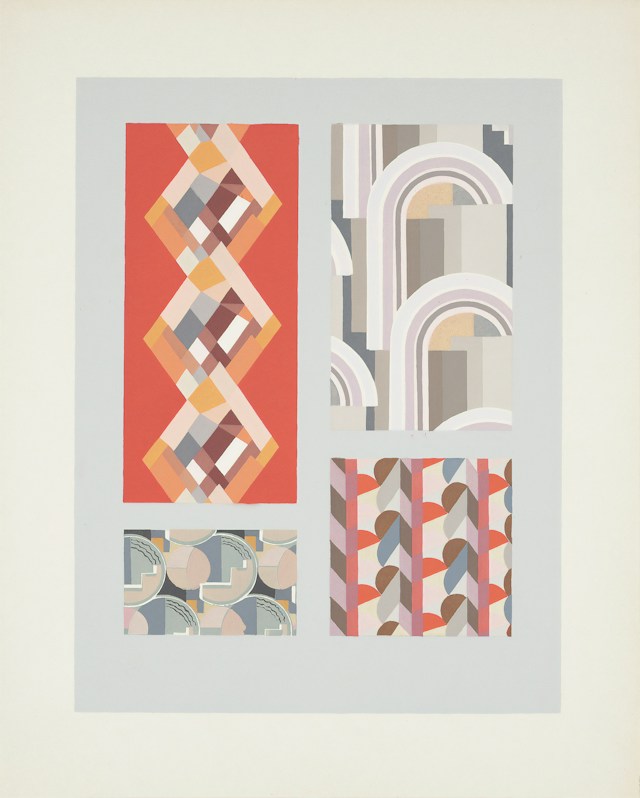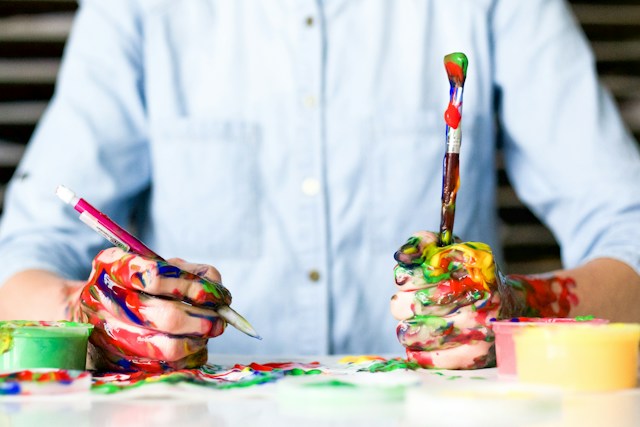Did you know? Art therapy significantly reduces anxiety, depression, and stress by 73%, benefiting mental health. It improves social skills in children with Autism Spectrum Disorder and alleviates pain and fatigue in cancer patients by 34% after 12 sessions. Veterans with post-traumatic stress disorder experience a 50% improvement in symptoms, while adolescents show a 54% decrease in self-harm tendencies. Additionally, group art therapy reduces negative emotions by 45% in individuals with serious mental illnesses.
Art therapy courses are gaining traction among Indian mental health professionals as a novel method to tackle conditions such as depression. Although art-based therapies have existed for centuries, it’s only in recent times that the mental health field has acknowledged and embraced their effectiveness.
Engaging in art therapy courses facilitates a profound exploration of one’s personality and emotions. Serving as a potent coping mechanism, it empowers individuals to express themselves positively, overcome challenges, and cultivate new hobbies for relaxation of the mind and body.
What is Art Therapy
Art therapy is a form of psychotherapy that utilizes creative processes like drawing, painting, and sculpting to enhance mental and emotional well-being. It is facilitated by trained art therapists who guide individuals through these activities. The critical elements of art therapy include:
● Providing a non-verbal means of expression for those who struggle with verbal communication.
● Viewing creativity as a healing process that promotes relaxation and emotional release.
● Encouraging participants to explore the symbolism and metaphor within their artwork.
● The therapeutic relationship between the art therapist and the individual is crucial, creating a safe and supportive environment for self-expression.
In recent years, mental health care has witnessed a transformative shift towards holistic and creative approaches. One such method gaining prominence in India is art therapy – a unique therapeutic practice that uses the creative process of making art to improve mental well-being. This article explores the rise of art-based therapies in India and deepens into the basic principles of art therapy, shedding light on how these courses positively impact mental health.

Critical components of an art therapy course typically include:
Theory and Principles
Understanding the theoretical foundations of art therapy, including its history, principles, and the psychological theories that underpin its practices.
Artistic Techniques
Exploring various artistic mediums, techniques, and approaches in art therapy. This may include drawing, painting, sculpture, and other forms of creative expression.
Practicum or Internship
Many art therapy courses include a practical component where students engage in supervised hands-on experiences.
Psychology and Counselling Skills
Gaining a foundational understanding of basic psychological principles and counselling skills to communicate and support individuals through art therapy effectively.
Self-Exploration
Encouraging personal exploration through art allows students to experience the therapeutic benefits of creative expression and gain insights into their emotional processes.
What are the Basic principles of Art Therapy?
Art is a universal and inherent expression for all human beings, particularly evident in children’s natural gravitation towards creative activities like mud play, finger-painting, and building with blocks. In childhood, art aids in refining motor skills, creating spatial awareness, and fostering brain development. Unfortunately, as individuals age, opportunities for unrestricted creative expression diminish. Art therapy course serves as an invitation to reconnect with innate creative potential, acting as a catalyst for personal transformation.
Contrary to common misconceptions, art therapy is not about skill or the final product’s appearance. Prior artistic experience or talent is optional. Instead, art therapy provides a platform for non-verbal communication, allowing individuals to engage in a creative process that brings forth thoughts and emotions for exploration and understanding.
Art’s significance goes beyond words. It accesses hidden subconscious material, including fears, defences, and important symbols. Art therapy facilitates self-awareness, enabling individuals to deepen their understanding of their inner state and engage in a curious dialogue with emerging content.
Different art materials serve distinct purposes, ranging from structured and controllable options like graphite and coloured pencils to more fluid mediums such as watercolours and clay, which encourage intuitive, playful self-expression. The choice of materials considers emotional states, providing avenues to challenge rigid thinking or accommodate those struggling with anxiety and self-doubt.
The artistic process is a rich source of information about individuals and their approach to life. Choices such as the grip on a pen, the pressure on the page, colour selection, and the pace of completion offer valuable insights into one’s relationship with major life themes. As an art therapist, the goal is to help individuals notice parallels between their current life patterns and artistic expressions, fostering self-discovery and personal growth.

Why is there a Rise of Art-Based Therapies in India?
The rise of art-based therapies in India can be attributed to several interconnected factors that reflect evolving societal attitudes, cultural dynamics, and an increased recognition and awareness of the holistic nature of mental health. Here are some key reasons for the growing prominence of art-based therapies in India:

Cultural Acceptance of Art
India has a rich cultural heritage that values various forms of artistic expression, from traditional arts and crafts to dance and music. The cultural acceptance of art has provided a conducive environment for the integration of creative practices into mental health care. The familiarity and appreciation for art make it easier for individuals to embrace art-based therapies.
Changing Perspectives on Mental Health
There is a noticeable shift in societal perspectives toward mental health in India. Increase awareness, education, and advocacy have contributed to breaking down the stigma related to mental health issues. As people become more open to discussing and addressing mental health concerns, alternative and creative therapies like art-based approaches gain acceptance.
Need for Holistic Mental Health Care
Traditional approaches to mental health care in India have predominantly focused on pharmaceutical interventions and talk therapy. However, there is a growing recognition of the need for holistic approaches that consider the mind, body, and spirit. Art-based therapies align with this holistic perspective, offering a unique self-expression and emotional processing avenue.
Training Programs and Professionalization
Establishing formal training programs and educational institutes offering courses in art therapy has played a pivotal role. As the demand for qualified art therapists grows, these training programs and courses equip individuals with the skills and knowledge to integrate art-based interventions into mental health practices. This professionalization enhances the credibility and effectiveness of art-based therapies.
Global Influence and Research
The global acceptance and success of art-based therapies have influenced the Indian mental health landscape. Research studies showcasing the positive impact of art therapy on various mental health issues have provided evidence-based support for its efficacy. This global perspective has encouraged mental health professionals in India to explore and incorporate art-based interventions.
Diversity of Art Forms in India
India’s diverse cultural landscape includes many art forms and traditions. This diversity allows for adapting art-based therapies to cater to individual preferences and cultural contexts. Different art modalities, whether traditional or contemporary, provide various options for individuals to engage with based on their comfort and familiarity.
Alternative Therapeutic Options
Art-based therapies emerge as appealing options as individuals seek alternatives to conventional therapeutic approaches. Their creative and nonverbal nature is particularly beneficial for those who find it challenging to express themselves through traditional talk therapy.
Community and Social Impact
Art-based therapies have the potential to foster a sense of community and social connection. Group art therapy sessions, for example, provide individuals with shared experiences and a supportive environment. This communal aspect aligns with Indian cultural values of community and interconnectedness.
Popular Art therapy courses online
If you want to explore art therapy courses online, several reputable platforms and institutions offer comprehensive programs. Some notable options include:
Coursera: Art and Science of Drawing (Online Course)
Platform: Coursera
Description: Explore the fundamentals of drawing as a therapeutic practice, covering techniques, observation skills, and the therapeutic benefits of visual expression.
Udemy: Art Therapy and Mindfulness Online Course
Platform: Udemy
Description: This course combines art therapy principles with mindfulness techniques, providing a holistic approach to enhancing mental well-being through creative expression.
University of Western Ontario: Introduction to Art Therapy
Platform: University of Western Ontario (OntarioLearn)
Description: A foundational course introducing fundamental concepts of art therapy, suitable for beginners or those interested in a basic understanding of the field.
Expressive Art Workshops: Online Art Therapy Classes
Platform: Expressive Art Workshops
Description: This platform provides a range of online workshops exploring art as a therapeutic tool, with topics such as intuitive painting, creative self-discovery, and stress reduction through art.
Global Institute of Forensic Research: Online Art Therapy Training
Platform: GIFR
Description: This online training program specializes in forensic art therapy and explores the intersection of art therapy and forensic psychology, offering insights into the use of art in legal and correctional settings.
Before enrolling, ensure that the course aligns with your specific interests, whether you’re looking for an introductory overview or a more specialized focus in art therapy. Additionally, check for the accreditation and credentials of the institution or instructor offering the course to ensure the quality of the educational experience.
Conclusion
In conclusion, the realm of art therapy courses in India is evolving, witnessing a growing recognition of its potential to contribute to mental health and well-being. As individuals rediscover the universal language of art as a means of expression and self-discovery, the demand for art therapy courses will likely rise. It is encouraging to see institutions and organizations embracing the therapeutic aspects of creativity, providing opportunities for individuals to engage with art for personal growth and transformation. As the field continues to expand, the hope is that art therapy will become an increasingly integral component of mental healthcare in India, offering a unique and powerful avenue for individuals to explore, heal, and connect with their inner selves.
Also Read: Explore Origami Paper Craft Ideas in Art Therapy Course

Pingback: Art Therapy: A Journey of Self-Expression and Healing